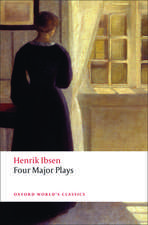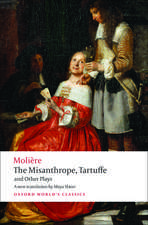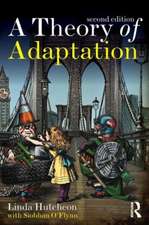American Utopia and Social Engineering in Literature, Social Thought, and Political History: Routledge Transnational Perspectives on American Literature
Autor Peter Swirskien Limba Engleză Paperback – 13 noi 2012
American Utopia and Social Engineering sets out to correct this amnesia. It misses no opportunity to flesh out both the historical premises and the political promises behind the social policies and political events of the period. These interdisciplinary concerns provide, in turn, the framework for the analyses of works of American literature that mirror their times and mores.
Novels considered include: B.F. Skinner and Walden Two (1948), easily the most scandalous utopia of the century, if not of all times; Ken Kesey’s One Flew Over the Cuckoo’s Nest (1962), an anatomy of political disfranchisement American-style; Bernard Malamud’s God’s Grace (1982), a neo-Darwinian beast fable about morality in the thermonuclear age; Walker Percy’s The Thanatos Syndrome (1986), a diagnostic novel about engineering violence out of America’s streets and minds; and Philip Roth’s The Plot Against America (2004), an alternative history of homegrown ‘soft’ fascism.
With the help of the five novels and the social models outlined therein, Peter Swirski interrogates key aspects of sociobiology and behavioural psychology, voting and referenda procedures, morality and altruism, multilevel selection and proverbial wisdom, violence and chip-implant technology, and the adaptive role of emotions in our private and public lives.
| Toate formatele și edițiile | Preț | Express |
|---|---|---|
| Paperback (1) | 451.41 lei 6-8 săpt. | |
| Taylor & Francis – 13 noi 2012 | 451.41 lei 6-8 săpt. | |
| Hardback (1) | 1057.43 lei 6-8 săpt. | |
| Taylor & Francis – 11 apr 2011 | 1057.43 lei 6-8 săpt. |
Din seria Routledge Transnational Perspectives on American Literature
-
 Preț: 389.38 lei
Preț: 389.38 lei - 22%
 Preț: 213.77 lei
Preț: 213.77 lei -
 Preț: 416.22 lei
Preț: 416.22 lei - 14%
 Preț: 324.02 lei
Preț: 324.02 lei - 14%
 Preț: 327.38 lei
Preț: 327.38 lei - 12%
 Preț: 325.34 lei
Preț: 325.34 lei - 18%
 Preț: 312.15 lei
Preț: 312.15 lei -
 Preț: 444.45 lei
Preț: 444.45 lei -
 Preț: 490.83 lei
Preț: 490.83 lei - 28%
 Preț: 824.40 lei
Preț: 824.40 lei - 18%
 Preț: 1056.00 lei
Preț: 1056.00 lei -
 Preț: 304.90 lei
Preț: 304.90 lei - 18%
 Preț: 1061.93 lei
Preț: 1061.93 lei -
 Preț: 464.54 lei
Preț: 464.54 lei -
 Preț: 449.41 lei
Preț: 449.41 lei -
 Preț: 464.54 lei
Preț: 464.54 lei - 18%
 Preț: 1000.27 lei
Preț: 1000.27 lei -
 Preț: 466.49 lei
Preț: 466.49 lei - 18%
 Preț: 1057.05 lei
Preț: 1057.05 lei -
 Preț: 428.46 lei
Preț: 428.46 lei -
 Preț: 278.72 lei
Preț: 278.72 lei -
 Preț: 441.95 lei
Preț: 441.95 lei -
 Preț: 487.86 lei
Preț: 487.86 lei - 18%
 Preț: 999.19 lei
Preț: 999.19 lei -
 Preț: 257.95 lei
Preț: 257.95 lei - 16%
 Preț: 325.63 lei
Preț: 325.63 lei - 18%
 Preț: 1052.38 lei
Preț: 1052.38 lei - 18%
 Preț: 1060.87 lei
Preț: 1060.87 lei - 18%
 Preț: 1061.57 lei
Preț: 1061.57 lei
Preț: 451.41 lei
Nou
Puncte Express: 677
Preț estimativ în valută:
86.39€ • 89.86$ • 71.32£
86.39€ • 89.86$ • 71.32£
Carte tipărită la comandă
Livrare economică 14-28 aprilie
Preluare comenzi: 021 569.72.76
Specificații
ISBN-13: 9780415816878
ISBN-10: 0415816874
Pagini: 270
Ilustrații: 26 b/w images and 26 halftones
Dimensiuni: 152 x 229 x 18 mm
Greutate: 0.5 kg
Ediția:1
Editura: Taylor & Francis
Colecția Routledge
Seria Routledge Transnational Perspectives on American Literature
Locul publicării:Oxford, United Kingdom
ISBN-10: 0415816874
Pagini: 270
Ilustrații: 26 b/w images and 26 halftones
Dimensiuni: 152 x 229 x 18 mm
Greutate: 0.5 kg
Ediția:1
Editura: Taylor & Francis
Colecția Routledge
Seria Routledge Transnational Perspectives on American Literature
Locul publicării:Oxford, United Kingdom
Public țintă
Postgraduate and UndergraduateCuprins
Introduction. Life Is More Important Than Art or Social Engineering, Eutopia, and Evolution 1. How I Stopped Worrying and Loved Behavioural Engineering or Communal Life, Adaptations, and B.F. Skinner’s Walden Two 2. You’re Not in Canada until You Can Hear the Loons Crying or Voting, People’s Power, and Ken Kesey’s One Flew over the Cuckoo’s Nest 3. You’ll Never Make a Monkey Out of Me or Altruism, Proverbial Wisdom, and Bernard Malamud’s God’s Grace 4. We Better Kill the Instinct to Kill Before It Kills Us or Violence, Mind Control, and Walker Percy’s The Thanatos Syndrome 5. It Can’t Happen Here or Politics, Emotions, and Philip Roth’s The Plot against America
Recenzii
"Professor Swirski is something of a phenomenon. His publishing record is superb by any standard. His background in European and American literatures is formidable. His style is witty, accessible, and admirably suited to his subject. A great teacher in the university classroom, Professor Swirski uses his pedagogical skills to take the reader via his books through a series of complex subjects on which he is obviously an expert. American Utopia is a superb example of his particular abilities manifesting themselves in a new and original project… a remarkably original contribution to American studies…. there really is no other book out there remotely like it."
-- David Rampton, Department of English, University of Ottawa
"This is a stunning book. Drawing on a rich blend of literary analysis, sociopolitical critique, and evolutionary biology, Swirski examines the hopes, horrors, and illusions of utopian social engineering through the lens of twentieth-century American fiction. Superbly crafted, accessible to the non-specialist, and intellectually exhilarating, American Utopia and Social Engineering should not be missed."
-- David Livingstone Smith, Department of Philosophy, University of New England
"American Utopia will be seen as a superb example of interdisciplinary research and will also find a market in academic circles, using material, as it does, from the biological sciences, neurosciences, the social sciences, literary theory, the humanities, philosophical thought, etc."
-- Arthur Asa Berger, Broadcast and Electronic Communication Arts, San Francisco State University
"Professor Swirski’s subject is huge and complicated. Few scholars would even take it up, but he has managed to pursue it with considerable vigor and passion. The result is a book that is sometimes brilliant, usually provocative, and nearly always interesting… Swirski is clearly a first-rate interdisciplinary scholar who is doing important work."
-- Philip R. Yannella, Professor of English and American Studies, Temple University
"In the Sallisen opera, Paavo Haavikko’s Ratsumies says: ‘How can I dare to hope anything, when all my hopes come true?’ Using imaginative examples from American literature as the testing ground, Peter Swirski examines in the same spirit the collective hopes that found their expression in sundry American utopias. What could—what would—happen if they were realized? Stay tuned to this book!
-- Jaakko Hintikka, Department of Philosophy, Boston University
"political and textual assonance of merit".
-- Christopher Hitchens
"excellent… enlightening and thought provoking… Swirski has been long recognized as an important literary scholar and theorist… sure to bear fruit for scholars of politics and literature alike."
-- Journal of American Studies
"utterly absorbing, not to say epic in design and execution".
-- European Journal of American Studies
"innovative and unique mixture of political science, literary scholarship, and evolutionary studies… exceptional and crucial addition to our understanding of not only utopias and utopian fiction, but also social engineering".
-- Review of International American Studies
"What makes American Utopia a special book is the quantity and quality of ideas raised and the zest of the writing".
-- Philosophy in Review
"Swirski is the author of several important and provocative studies, including the From Lowbrow to Nobrow and Ars Americana, Ars Politica, and his most recent offering continues the tradition of incisive, stylishly written, scientifically-informed critique... a vigorously argued and beautifully written testament to just how far in this direction historically savvy, scientifically informed literary analysis can take us."
-- The Montreal Review
-- David Rampton, Department of English, University of Ottawa
"This is a stunning book. Drawing on a rich blend of literary analysis, sociopolitical critique, and evolutionary biology, Swirski examines the hopes, horrors, and illusions of utopian social engineering through the lens of twentieth-century American fiction. Superbly crafted, accessible to the non-specialist, and intellectually exhilarating, American Utopia and Social Engineering should not be missed."
-- David Livingstone Smith, Department of Philosophy, University of New England
"American Utopia will be seen as a superb example of interdisciplinary research and will also find a market in academic circles, using material, as it does, from the biological sciences, neurosciences, the social sciences, literary theory, the humanities, philosophical thought, etc."
-- Arthur Asa Berger, Broadcast and Electronic Communication Arts, San Francisco State University
"Professor Swirski’s subject is huge and complicated. Few scholars would even take it up, but he has managed to pursue it with considerable vigor and passion. The result is a book that is sometimes brilliant, usually provocative, and nearly always interesting… Swirski is clearly a first-rate interdisciplinary scholar who is doing important work."
-- Philip R. Yannella, Professor of English and American Studies, Temple University
"In the Sallisen opera, Paavo Haavikko’s Ratsumies says: ‘How can I dare to hope anything, when all my hopes come true?’ Using imaginative examples from American literature as the testing ground, Peter Swirski examines in the same spirit the collective hopes that found their expression in sundry American utopias. What could—what would—happen if they were realized? Stay tuned to this book!
-- Jaakko Hintikka, Department of Philosophy, Boston University
"political and textual assonance of merit".
-- Christopher Hitchens
"excellent… enlightening and thought provoking… Swirski has been long recognized as an important literary scholar and theorist… sure to bear fruit for scholars of politics and literature alike."
-- Journal of American Studies
"utterly absorbing, not to say epic in design and execution".
-- European Journal of American Studies
"innovative and unique mixture of political science, literary scholarship, and evolutionary studies… exceptional and crucial addition to our understanding of not only utopias and utopian fiction, but also social engineering".
-- Review of International American Studies
"What makes American Utopia a special book is the quantity and quality of ideas raised and the zest of the writing".
-- Philosophy in Review
"Swirski is the author of several important and provocative studies, including the From Lowbrow to Nobrow and Ars Americana, Ars Politica, and his most recent offering continues the tradition of incisive, stylishly written, scientifically-informed critique... a vigorously argued and beautifully written testament to just how far in this direction historically savvy, scientifically informed literary analysis can take us."
-- The Montreal Review
Descriere
The United States today is afflicted with political alienation, militarized violence, institutionalized poverty, and social agony. Worst of all, perhaps, it is afflicted with chronic and acute ahistoricism. America insist on ignoring the context of its present dilemmas. It insists on forgetting what preceded the headlines of today and on denying continuity with history. It insists, in short, on its exceptionalism.
American Utopia and Social Engineering sets out to correct this amnesia. It misses no opportunity to flesh out both the historical premises and the political promises behind the social policies and political events of the period. These interdisciplinary concerns provide, in turn, the framework for the analyses of works of American literature that mirror their times and mores.
Novels considered include: B.F. Skinner and Walden Two (1948), easily the most scandalous utopia of the century, if not of all times; Ken Kesey’s One Flew Over the Cuckoo’s Nest (1962), an anatomy of political disfranchisement American-style; Bernard Malamud’s God’s Grace (1982), a neo-Darwinian beast fable about morality in the thermonuclear age; Walker Percy’s The Thanatos Syndrome (1986), a diagnostic novel about engineering violence out of America’s streets and minds; and Philip Roth’s The Plot Against America (2004), an alternative history of homegrown ‘soft’ fascism.
With the help of the five novels and the social models outlined therein, Swirski interrogates key aspects of sociobiology and behavioural psychology, voting and referenda procedures, morality and altruism, multilevel selection and proverbial wisdom, violence and chip-implant technology, and the adaptive role of emotions in our private and public lives.
American Utopia and Social Engineering sets out to correct this amnesia. It misses no opportunity to flesh out both the historical premises and the political promises behind the social policies and political events of the period. These interdisciplinary concerns provide, in turn, the framework for the analyses of works of American literature that mirror their times and mores.
Novels considered include: B.F. Skinner and Walden Two (1948), easily the most scandalous utopia of the century, if not of all times; Ken Kesey’s One Flew Over the Cuckoo’s Nest (1962), an anatomy of political disfranchisement American-style; Bernard Malamud’s God’s Grace (1982), a neo-Darwinian beast fable about morality in the thermonuclear age; Walker Percy’s The Thanatos Syndrome (1986), a diagnostic novel about engineering violence out of America’s streets and minds; and Philip Roth’s The Plot Against America (2004), an alternative history of homegrown ‘soft’ fascism.
With the help of the five novels and the social models outlined therein, Swirski interrogates key aspects of sociobiology and behavioural psychology, voting and referenda procedures, morality and altruism, multilevel selection and proverbial wisdom, violence and chip-implant technology, and the adaptive role of emotions in our private and public lives.
















